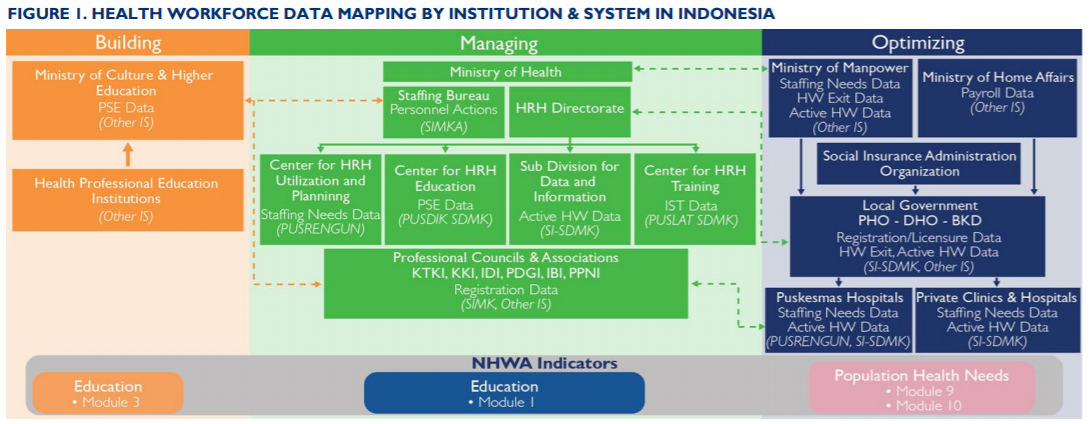
24 Feb New HRH2030 Case Study Looks at Implementing National Health Workforce Accounts in Indonesia
HRH2030 has published the first of a three-part case study series on National Health Workforce Accounts, Optimizing Health Workforce Information Systems and Data Analytics to Improve Decision Making in Indonesia. The study highlights Indonesia’s key health workforce priorities and documents the actions and steps taken by the Ministry of Health’s Badan Pengembangan Dan Pemberdayaan SDM Kesehatan (BPPSDMK, the Board of Human Resources for Health Empowerment and Development) to optimize health worker information and data analytics to improve health workforce decision making.
The concise, six-page study examines how the Indonesian government set its health workforce priorities, the specific steps the BPPSDMK and it partners implemented to improve existing information sources to facilitate National Health Workforce Accounts (NHWA)—including strengthening the human resource information system, engaging stakeholders across the health labor market, and building human capacity for using and managing data—as well as lessons learned and the way forward.
HRH2030 Indonesia has been working with the BPPSDMK and USAID Indonesia over the last three years to develop a digital ecosystem of health workforce stakeholders and systems to improve the availability and quality of data for use by decision makers at all level of the health system. USAID Indonesia and HRH2030 were named winners of the USAID Digital Development Awards for this work. These efforts to support NHWA implementation have also provided a strong base for improving the availability and use of quality data in the COVID-19 response, demonstrating further the importance of investing in strengthening of health workforce information and analytics systems.
Access the case study here. A complete overview of HRH2030’s work in Indonesia can be found here.
The two remaining case studies, examining NHWA implementation in Ethiopia and the Philippines, will be published in the coming months. Together, these case studies will present a diverse set of country challenges in implementing NHWA and the approaches supported by HRH2030 to overcome these challenges.





